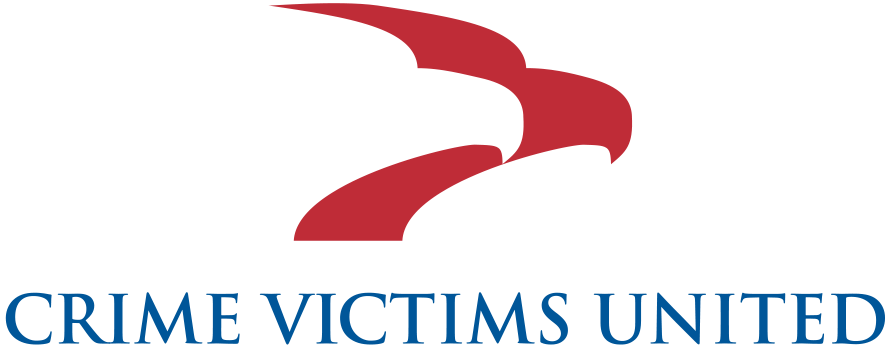Parole Hearings
Parole Policy Change Threatens Victims’ Rights…
Previous Process: Under prior law, when an inmate received a three-year denial for their next parole hearing, the inmate could petition the Board to advance the hearing date. This required the inmate to present evidence of a significant change in circumstances. The review was initiated by the inmate, and advancement was granted only if justified by the evidence presented.
Policy as of October 1, 2013: The Board now proactively reviews all inmate files within three years of a denial—after just one year—without any request from the inmate and without notifying victims. This is a major policy shift.
Crime Victims United strongly believes this change violates Marsy’s Law and erodes the very protections victims fought hard to secure. We have met with the Executive Director of the Board of Parole Hearings and demanded that this policy be stopped immediately. However, the policy remains in effect. We urge you to contact Governor Gavin Newsom and request that he put an immediate end to this policy. Victims deserve to be notified and protected.
Write to:
The Honorable Gavin Newsom
California State Governor
c/o State Capitol, Suite 1173
Sacramento, CA 95814
Please stand with us as we continue to defend victims' rights.
If You Have an Upcoming Parole Hearing
Recent changes at the Board of Parole Hearings have had a profoundly negative impact on victims. Parole grants are on the rise, and the Board increasingly appears to view inmates as victims. Disturbingly, prisoner rights groups are now being allowed to attend parole hearings.
In light of this, it is critical that victims exercise their Marsy’s Law right to have legal representation at parole hearings. This does not replace the victim’s own appearance or the presence of a District Attorney; rather, it strengthens the victim’s voice and enhances public safety.
How to Stay Informed
To be notified of parole hearings, you must inform the CDCR Office of Victim and Survivor Rights and Services (OVSRS) that you wish to receive notifications. Ensure your contact information is current.
Contact:
Phone: 916-327-5933 or toll-free 1-877-256-6877
Email: ovssinet@cdcr.ca.gov
By law, the Board must notify victims at least 90 days prior to a parole hearing, but only if requested by the victim. Under AB 88 (2024), the notice period to inform the Board of your intent to attend a hearing has been reduced to 15 days, offering victims more flexibility.
Attending the Parole Hearing
Your presence matters. Victims should attend parole hearings in person to help commissioners understand the lasting impact of the crime.
Hearings are typically conducted by one Commissioner and one Deputy Commissioner. Inmates may or may not attend. The county District Attorney’s office may send a DA or victim advocate.
Victims and their representatives (next of kin, spouse, parents, children, family friends) have the right to attend. Under Marsy’s Law, victims may also be represented by an attorney during the hearing. Per Penal Code § 3043.6, victims or their representatives have the right to speak last at the hearing, ensuring their voice is the final input considered.
We’ve seen numerous cases where the presence of a victims’ attorney contributed directly to parole denials. District Attorneys have praised the effectiveness of this support.
Preparing Your Victim Impact Statement
Your statement should be:
Personal and heartfelt
Brief and focused (2 pages; 2–5 minutes)
Describe:
How the crime continues to affect your life
The impact of a potential release
No one can interrupt your statement. Bring extra copies for the commissioners, the inmate’s attorney, the DA, or your own attorney.
Important: Refer to Penal Code § 3043, which supports your right to present a victim impact statement. Bring a printed copy with you in case the commissioners are unfamiliar with this provision. You may also submit audiotaped or videotaped statements per Penal Code § 3043.2, along with a written transcript.
Remote Participation: Under Penal Code § 3043.25, victims and their representatives may participate in hearings via videoconference if the technology is available.
Order of Speakers at the Hearing:
District Attorney (if present)
Inmate’s Attorney (if present)
Inmate (if present)
Victim (if present)
Victim’s Attorney (if present)
Having the victim’s attorney speak last is key—it allows them to respond directly to misinformation and inconsistencies. This can be crucial in securing a parole denial. District Attorneys often appreciate this support, as they are not permitted to speak again after the inmate.
After all parties have spoken, the commissioners will leave to deliberate. This may take an hour or more. Once they return, the decision will be announced and recorded. Victims are entitled to a copy of the transcript.
Post-Hearing Process
If parole is denied, the denial can be for 3, 5, 7, 10, or 15 years.
If parole is granted, it must go through further review by the Board and the Governor.
Inmates remain incarcerated during the review process, which can take up to 4 months.
Victims can write to the Governor to oppose parole and may also ask others to write letters in support.
You may also wish to cc the Governor’s Legal Affairs Secretary. Contact details can be found at:
👉 https://www.caloes.ca.gov/office-of-the-director/policy-administration/legal-affairs/
Choosing an Attorney
If you hire an attorney, ensure they are highly knowledgeable in Marsy’s Law and victims’ rights. Some Parole Board Commissioners are unfamiliar with these protections and have attempted to block victim attorneys from speaking. Your attorney must be prepared to cite and defend the law firmly.
There is no substitute for a victim's personal appearance. But an experienced victims' attorney can be a powerful ally.
Travel Reimbursement for Parole Hearings
Since May 2010, OVSRS has offered federal grant funds to reimburse travel costs—up to $100—for a limited number of victims attending parole hearings.
Eligible costs include:
Lodging
Meals
Transportation
Incidentals
To apply, submit:
Travel Expense Claim
Oath of Allegiance & Declaration of Permission to Work
You’ll need:
Month/year of hearing
Hearing date and approximate time
Prison name and location
Purpose of travel: To attend a Parole Board Hearing for Inmate [Name], CDC Number [#]
Your vehicle license number (if applicable)
Mileage (rate: $0.50/mile)
Original receipts
For forms and info:
👉 CDCR Victim Services Travel Voucher
📞 Call (877) 256-6877 (Ext. 2 or 3)


